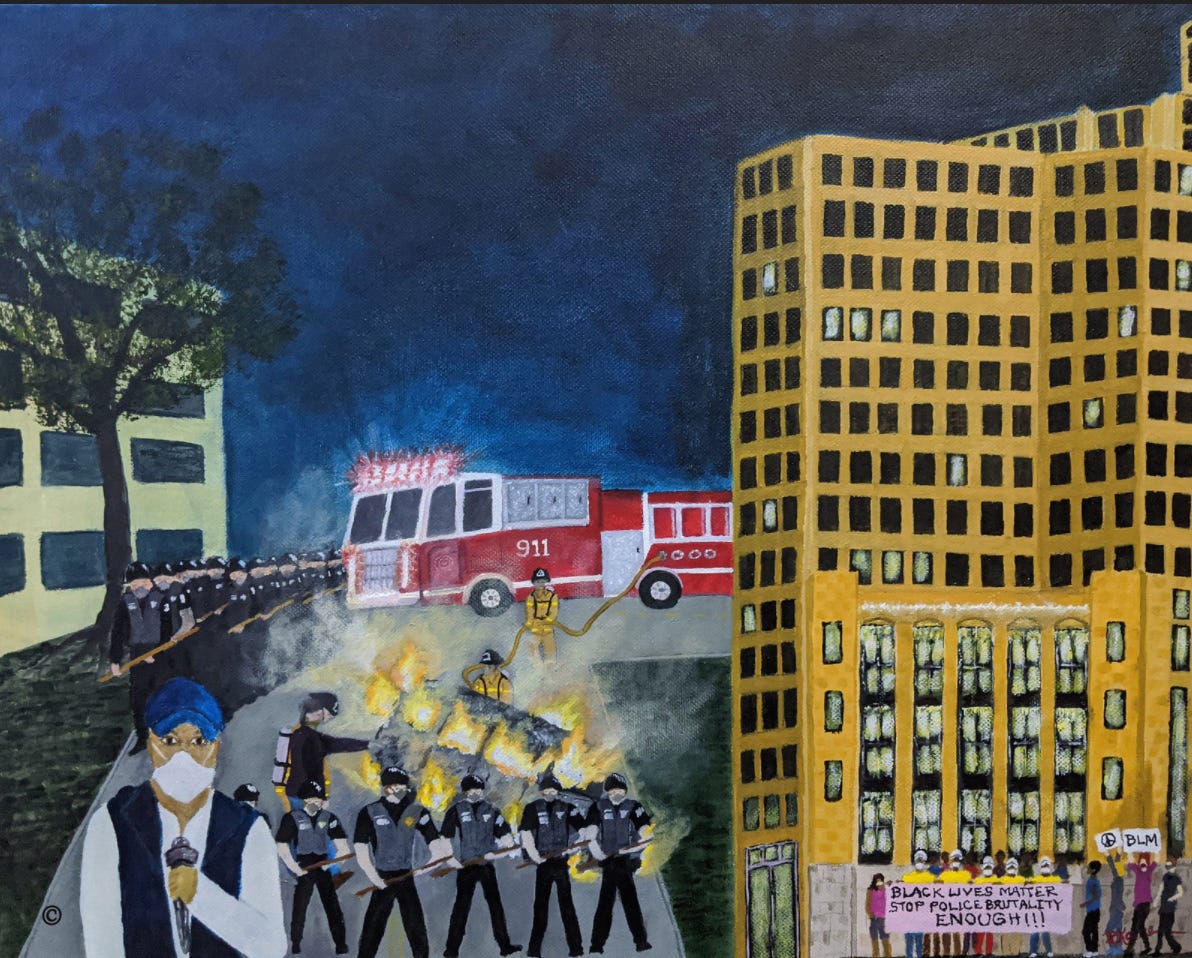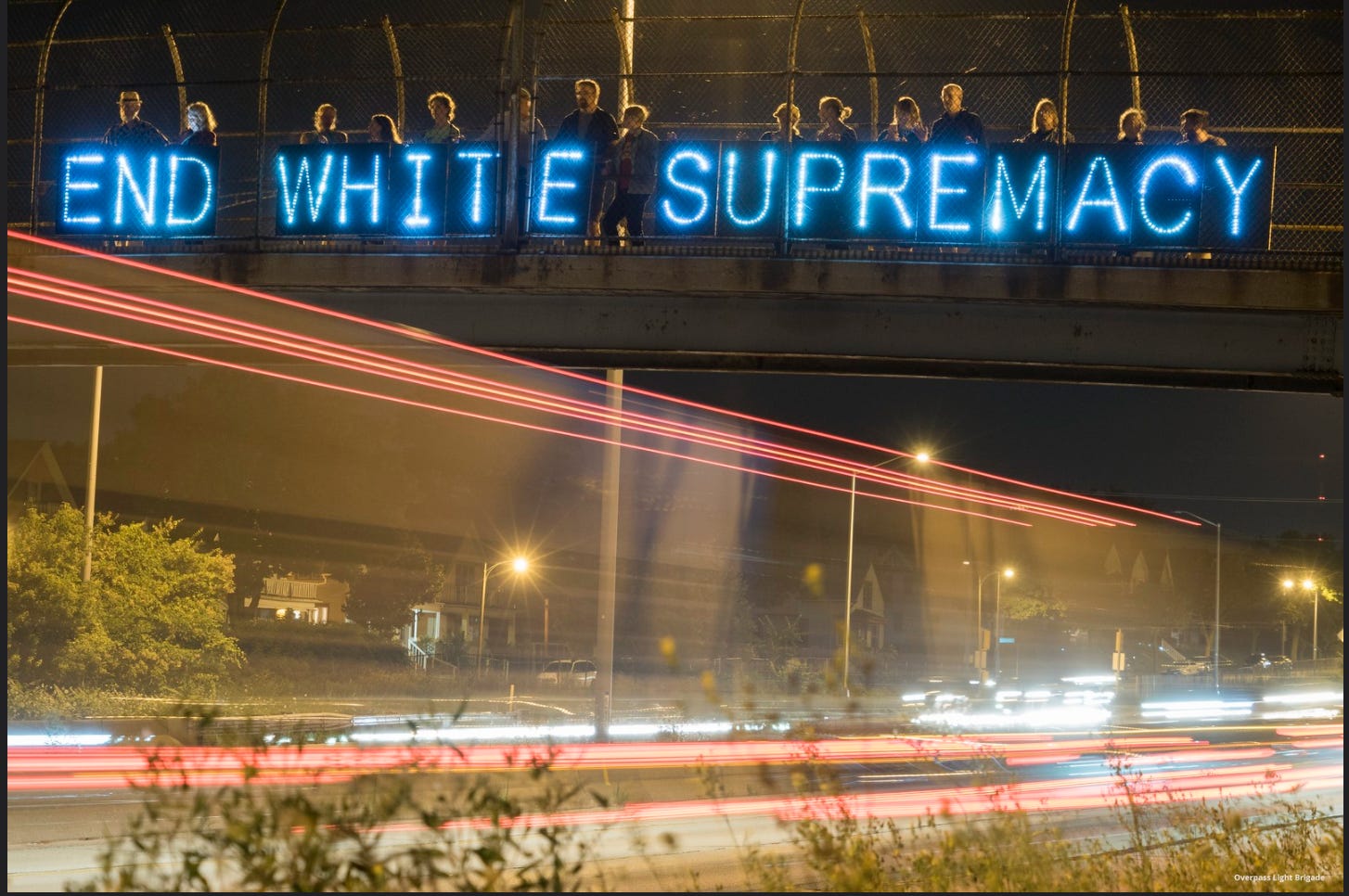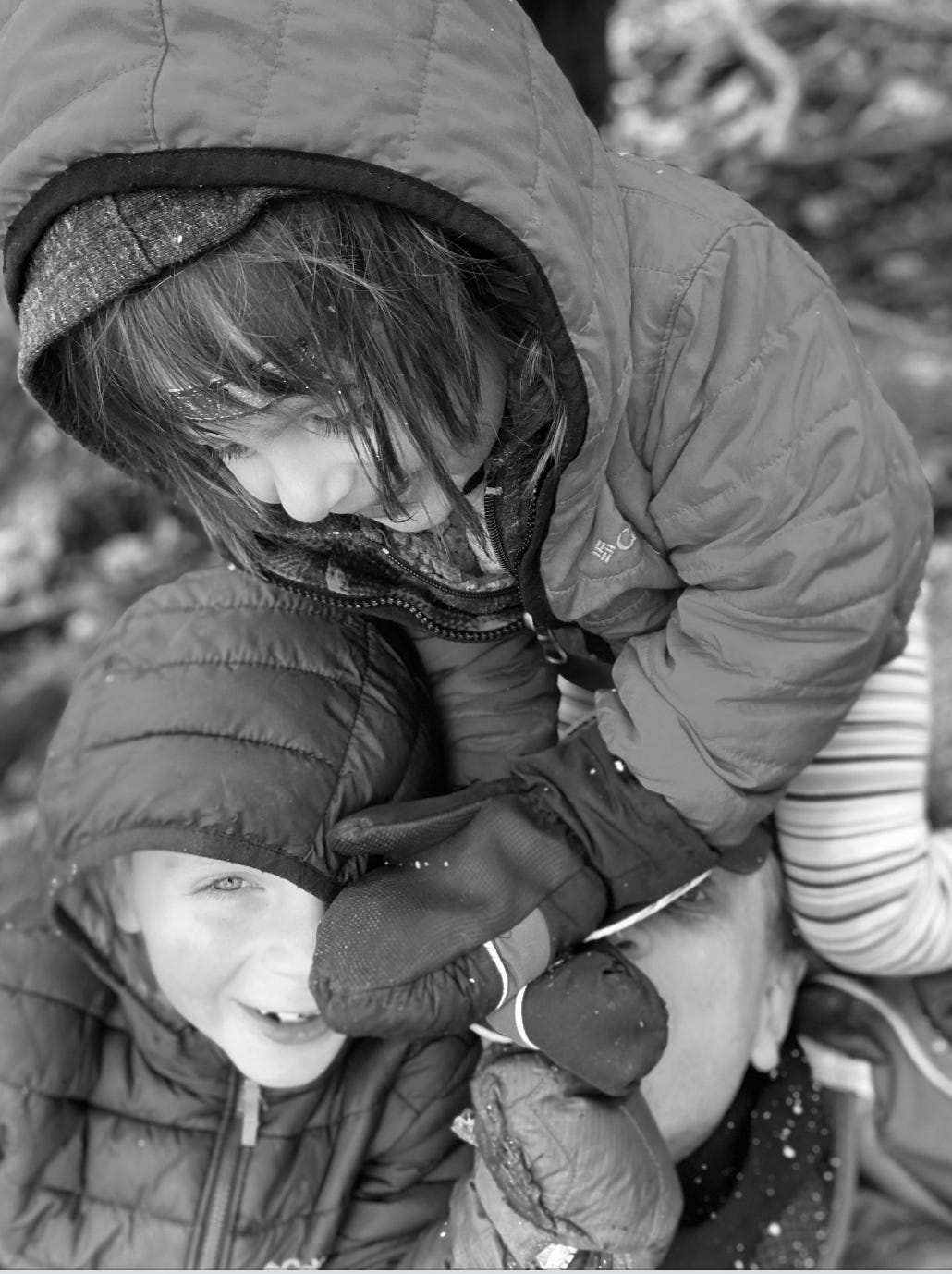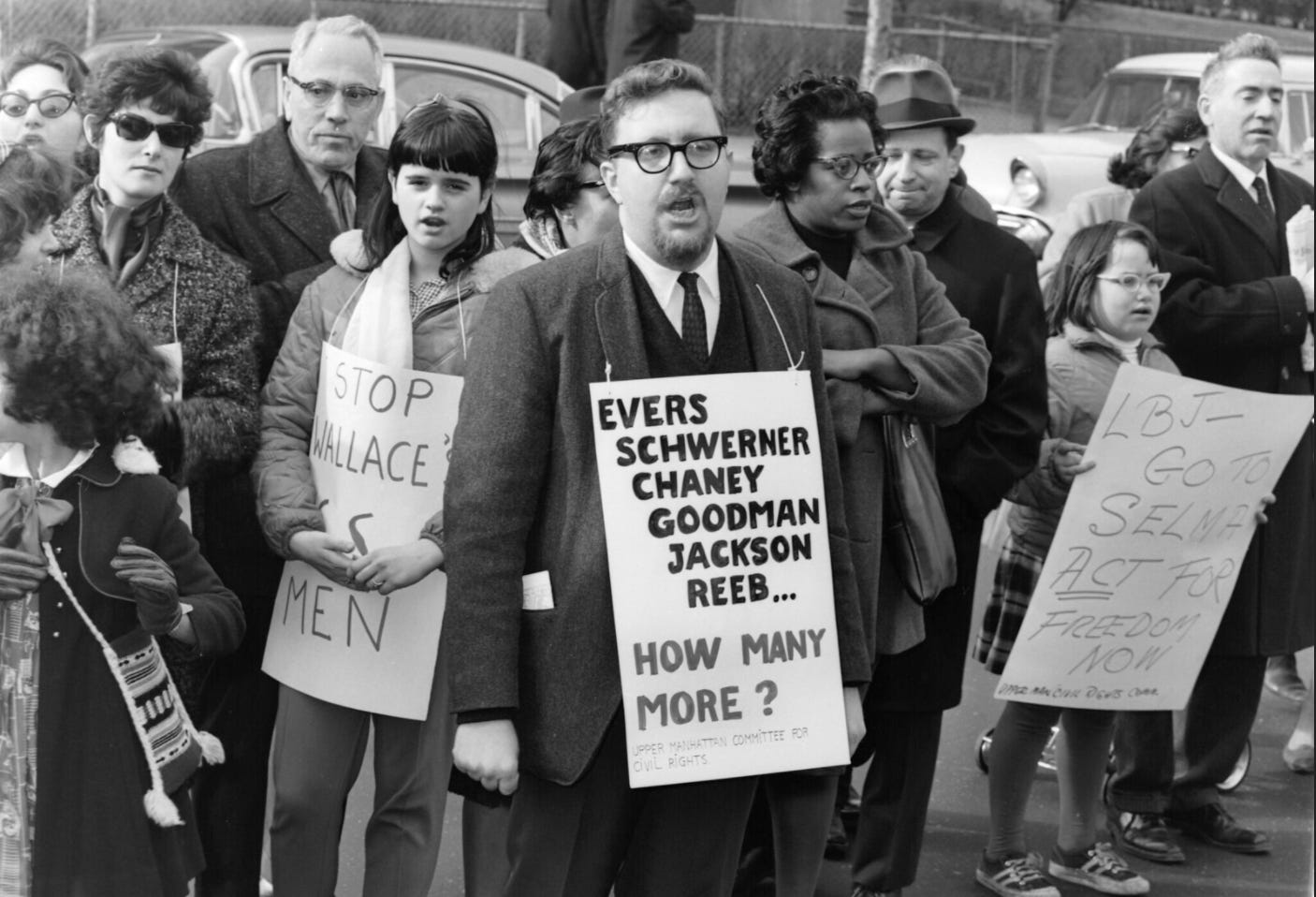When you say you love justice but what you really want is for others to love you
What would our activism look like if we had nothing to prove, if we could truly focus on love for others and not on filling a hole?

Patricia Kane/Flickr (Creative Commons)
Notes:
This week’s issue is dedicated to a nation of younger activists whose years-long work may be getting noticed now, but which didn’t JUST become beautiful and inspiring these past couple weeks. Locally, I’ll toss some dollars today to Leaders Igniting Transformation, who have been fighting to get to police out of Milwaukee schools and who may be on the cusp of some real momentum. While I’m sure they’d love your support too, I also know that there are young activists in your town whose work is no less inspiring.
The shorter thing I loved reading this week is this 2019 interview on community building and struggle between two all-time visionaries— Eve Ewing and Mariame Kaba. The longer thing is bell hooks’ Teaching Community: A Pedagogy of Hope
If I take your race away, and there you are, all strung out. And all you got is your little self, and what is that? What are you without racism? Are you any good? Are you still strong? Are you still smart? Do you still like yourself? I mean, these are the questions. Part of it is, "yes, the victim. How terrible it's been for black people." I'm not a victim. I refuse to be one... if you can only be tall because somebody is on their knees, then you have a serious problem. And my feeling is that white people have a very, very serious problem and they should start thinking about what they can do about it. Take me out of it.
-Toni Morrison
Toni Morrison passed away last August, which meant that a lot of us read a lot of Toni Morrison last August. We also listened to a lot of Toni Morrison interviews and watched old Toni Morrison clips and, for those of us who do anti-racism work with white people (a niche group, but stick with me), we unearthed and reread her public statements about white people.
Toni Morrison had a large white readership, but she pointedly didn’t write her books for white people. As far as I have been able to gather, there was an incredible specificity and consistency to the message she delivered every time she did address white communities directly. It’s the same message Baldwin gave to white people and the same message so many Black, Brown, Asian and Indigenous people have muttered to their friends behind closed doors:
White people really need to figure out how to love themselves.

Joe Brusky/Flickr (Creative Commons)
Oh goodness, fellow white people, we are DOING SOME STUFF right now. We are sparking loud and bright and fast. We are launching anti-racist books to the best seller lists and pushing every possible trainer and facilitator well past capacity. And while all this energy and attention is not without its risks (it has been particularly tiring and annoying for Black people in our circles), there is still beauty and potential in its earnestness. We are trying. We really do want to do better. And in the immortal words of Civil Rights leaders such as Bank of America and Forever 21 and I don’t know… Pringles probably? Jostens? Raytheon?… we are learning and listening.
I have been thinking about all this— the reading and the listening and the #amplification. It is good, you know. It really is. It beats so many alternatives. And yet.. and yet… and yet… if there is any lesson I can take from my own stumbling and bumbling through the world of anti-racism, it’s that it isn’t just about how much you know or how much you’ve welled up the precise right amount of tears in your eyes.

Self portrait with children, um, helping
Here’s two things you should know about me. The first is that I was intensely lucky to have been given many opportunities to learn about anti-racism from a very young age. My parents had the right conversations with me, introduced me to the right books, modeled relationships across line of power and were just generally wonderful. And no, I’m not just saying this because they read my writing. It’s true! I won’t tell you the full story of how my very blond self ended up as a member of an AME church choir, but suffice to say my mother comes off very well in it.
As I went through high school and college I was lucky to have mentors who pushed all that learning forward even further. If there was a standardized test on anti-racism, twenty-something Garrett Bucks would have nailed it— just crushing questions on invisible knapsacks and stereotype threats and Fanon and Lorde like a woke National Merit Scholar. And while I’m telling a story right now about my racial justice education, you best believe I’d have done equally well on the Feminism test or the Queer Theory test or the Class Politics test.
That brings us, of course, to the second thing you should know about me: That I’ve caused a lot of pain throughout my adult life, especially across lines of race and gender. I’ve not been a complete monster, mind you. As we are currently in an age of performative self-flagellation, I worry that I don’t know how to share this without it sounding like so much more gnashing of teeth and wearing of sackcloth. But goodness knows that, when I write about anti-oppressive politics, there are many people in my life very appropriately rolling their eyes because they’ve been on the wrong side of my missteps.
There are college friends and acquaintances who saw me do very little other than buy the right books and take a lot of classes with race and gender in the title.
There are former students whose right to a learning environment truly focused on their beauty and potential was held back by my need to have a classroom look and feel impressive to observers.
There are former colleagues who had to deal with a boss filibustering his way through meetings, running everything as if race and gender didn’t exist, as if they all experienced our shared space like a self-satisfied white man.
There are also former colleagues who, after I went through various racial justice awakenings, had to deal with me attempting to reconcile my past in grand performative sweeps, always a little too eager for the validation I got from doing so.
There are so many friends and acquaintances for whom relationships with me were too often reduced to what they could do for me, what proof they could provide that I was smart and funny and that I wasn’t like those other white people.
Most of all there are untold number of people in the communities I’ve lived and worked who, at the end of the day, had one more white guy taking up a lot of space while not being at all interested in doing anything humble or useful.
I’ve been puzzling over that disconnect quite a bit over the past couple years— why was it that I could KNOW so many of the right things and still be guilty of so many crimes of commission and omission? And so I thought back— to all those moments when I messed up the most. And oh goodness there were patterns.
You totally know where this is going.
It is really quite embarrassing when you realize that the step you’re not taking is the most obvious one, the most cliche one, the one most likely to be emblazoned in script font on a Magnolia for Target decorative pillow. But yeah, I kept hurting people, specifically though not solely across lines of power, because I was making far too many relationships about a search for validation and love that I hadn’t given myself. I’ll save you the full excavation of what emotional holes I was trying to fill, but there’s no deep dark uniqueness there. I was and am merely wrestling with the Garrett Bucks specific-remix of the same song we’re all singing.
The good news, of course, about making the most cliched, universal set of mistakes possible is that there is no shortage of pathways to try to move past that. I mean, “you’re already ok… you don’t have to prove it… now live in community with others” is a message you can find in every major faith community, in the mindfulness and meditation world, in therapy, in twelve-step programs and (I’m sure) at least like half of the most popular Tik-Tok accounts. I mean, if you think about, it was the main message of Space Jam (friends… Michael’s Secret Stuff was just water! The Toon Squad already had everything they needed!).
But here’s why it’s so important. If you don’t start, as a white person (or as a man in gender work, as a straight person in LGBTQ activism etc.) from the place of “I’m already enough… I don’t need to do anything or have anybody react in a specific way to prove that I’m enough” you’re going to putter out pretty quickly. You’re going to go off validation hunting, sometimes privately, sometimes in big clumsy public way. You’ll be asking “what’s the correct thing to do?” rather than “what’s the useful thing to do?” You may listen to Black and Brown and Indigenous and Asian and Middle Eastern people… but only so that they can give you the secret to your salvation, not because you… you know… care about them.

Winston Vargas/Flickr (Creative Commons)
So far we’ve only actually peeled back one layer. Morrison and Baldwin weren’t just talking about white people being individually needy and ego driven… they were talking about us collectively being so “not ok” with ourselves that we need to prop ourselves up with power and privilege and comfort to make up for our lack of love.
And that’s where the work really begins… when you’re ready to not simply say “I’m sufficient amounts of ok with myself to not make this relationship, this feedback, this new piece of learning about me” but to say “I’m going to be ok even if I have to give up things that are really comfortable for me if it means that we get to build a better world.” That’s what enables you to hear critiques about the way you do your job (or perhaps whether you should be in your job to begin with!), about the company or organization for which you work, about the schools where you send your kids, about the church or synagogue you attend, about the suburb or gentrified block in which you bought your house. Even more so, it’s what allows you to process all that not as a threat but as an invitation. It’s when you start being able to say “I love justice, I love other people, I love dreaming of a better world more than I love the specific comforts and patterns of my life.”
I have no doubt that you know this struggle (you know… the struggle to be ok with ourselves unconditionally, to be able to focus solely on loving other people, on the joy we get from community… that struggle). As such, you also know that I’d be lying if I presented myself as having transcended my version of it. I have my good days and bad days, things that work for me and moments when the old fears and insecurities get pretty gnarly. What I also have now, though, is more evidence of the kind of beautiful connection with other people that comes when I can get over myself a little more consistently.
This past week, the people I’ve been disproportionally connecting with have been other white people. As a lot of you know, I’m launching an organizing cohort, so I’ve received the gift of hundreds of responses from people seeking to join. They’ve been heartfelt and convicted and sad and angry and all the things you’d expect. They haven’t been self-pitying, but many did have a tone of longing— a sincere hatred of injustice playing out in a desire to do the right thing.
As I read them, again and again, I was just overwhelmed with wanting to tell every person— old friends and strangers alike— the same thing. The pain we’ve caused is not all right. The systems that prop us up, that we so consistently uphold, are not all right. White supremacy is not all right. But each of us, each of you… you’re already all right, you’re already enough, you’re already filled with so much goodness. You have nothing more you have to do in order to prove it. Everything you choose to do from here on out— be it loud and confrontational or quiet and strategic- gets to be solely out of love for others, solely out of imagination for a better world, solely out of an understanding that all the false idols that white supremacy offered you aren’t needed any more. You are beloved without them. You are ok. Now let’s get to work.
This week’s songs: “Colour of Anyhow” by Beverly Glenn-Copeland, “Space Jam” by the Quad City DJs




Goddess this is good. It makes me breathe differently. Your insights and humor and humility are such gifts. Thank you.
Wow. Thank you for this.